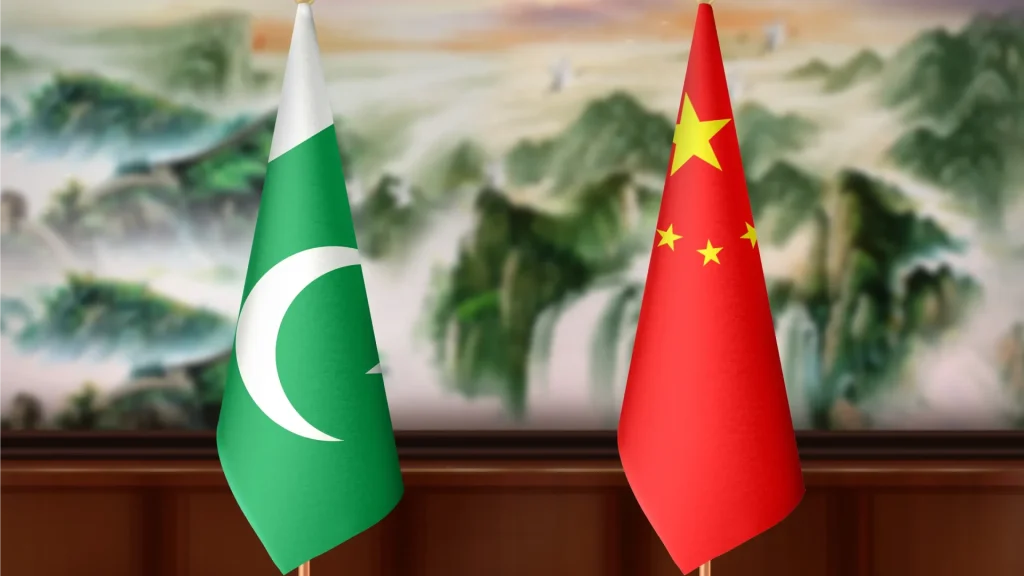Facilitated by the Special Investment Facilitation Council (SIFC) and governmental efforts, Pakistan is creating an investor-friendly environment that has drawn significant international attention. One of the most promising developments is the deep interest expressed by over 80 Chinese companies in partnering with Pakistan’s medical equipment sector.
This investment marks a pivotal moment in the country’s economic recovery, highlighting the potential of Pakistan’s healthcare industry to become a global player in medical manufacturing and trade.
The collaboration has led to the signing of approximately $250 million worth of Memorandums of Understanding (MoUs) to promote trade in the medical and surgical industries. These agreements not only symbolize strengthened bilateral ties between Pakistan and China but also provide a foundation for technological advancement and economic growth in the healthcare sector. Such investments are expected to transform the sector by introducing cutting-edge Chinese technology and modern manufacturing practices.
Chinese companies have emphasized establishing joint ventures in Pakistan to ensure sustainable growth in the medical equipment industry. Joint ventures provide numerous benefits, including the transfer of technology, skill development, and enhanced productivity.
By collaborating with local partners, Chinese firms aim to leverage Pakistan’s growing market potential while contributing to its industrial development. This approach ensures that the investment benefits are mutual, helping Pakistan build a competitive and self-reliant medical manufacturing base.
The importance of these joint ventures cannot be overstated. Pakistan’s healthcare industry, currently valued at over $600 million, is poised to experience substantial growth as a result of this collaboration. With China’s expertise in advanced manufacturing, robotics, and innovation, Pakistan’s medical sector can achieve global standards, allowing it to not only meet domestic demand but also export to international markets.
This partnership comes at a crucial time when global demand for high-quality yet affordable medical equipment is rising, presenting an opportunity for Pakistan to emerge as a key supplier in the region.
China’s advanced technology will play a pivotal role in transforming Pakistan’s medical industry. From diagnostic tools to surgical instruments, the integration of state-of-the-art technologies will enable Pakistani manufacturers to enhance the quality and efficiency of their products.
For instance, China’s expertise in automation and artificial intelligence can be utilized to develop precision medical instruments, making Pakistan’s exports more competitive in global markets.
Additionally, tax incentives and an affordable labor force have made Pakistan an attractive destination for foreign investment. The government’s commitment to providing a business-friendly environment has further solidified investor confidence.
By offering these incentives, Pakistan is addressing one of the most critical barriers to foreign direct investment (FDI): operational costs. This makes it easier for companies to establish manufacturing units, research facilities, and training centers in the country.
Moreover, the economic benefits of this collaboration extend beyond the healthcare sector. Increased FDI contributes to job creation, skill development, and infrastructure enhancement. As more Chinese firms establish their presence in Pakistan, ancillary industries such as logistics, packaging, and distribution are also expected to grow, creating a ripple effect of economic activity.
With the growth of the medical equipment sector, Pakistan is well-positioned to become a regional hub for healthcare manufacturing and exports. The collaboration with China provides an opportunity to tap into lucrative markets in the Middle East, Africa, and Central Asia. These regions face significant challenges in accessing affordable and high-quality medical equipment, and Pakistan’s strategic location makes it an ideal supplier.
Furthermore, the investment aligns with Pakistan’s broader goals under the Special Investment Facilitation Council. SIFC has been instrumental in streamlining processes, reducing bureaucratic hurdles, and ensuring transparency in investment projects. By attracting investments in key sectors like healthcare, SIFC is helping Pakistan diversify its economic base and reduce reliance on traditional industries such as textiles and agriculture.
The collaboration facilitated by SIFC is a testament to its pivotal role in promoting economic recovery by creating a favorable environment for business investments. The influx of Chinese investment in Pakistan’s medical equipment sector is not just a financial milestone but also a symbol of trust in the country’s economic potential. This partnership highlights the transformative power of collaboration, innovation, and strategic planning.
As Pakistan continues to face economic challenges, initiatives like these provide a roadmap for sustainable growth. By leveraging its partnerships with global players like China, Pakistan can unlock new opportunities, boost its industrial capabilities, and enhance its global standing. With the right leadership and continued commitment to reforms, the country’s medical industry could become a shining example of economic resilience and progress.


